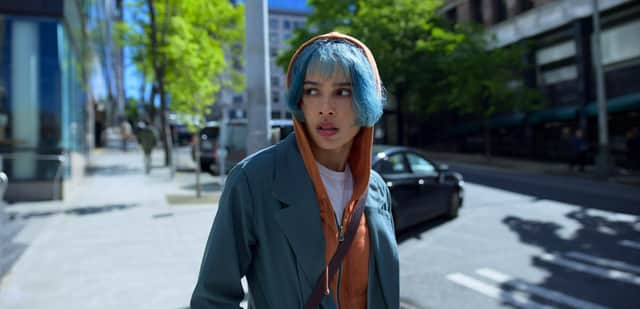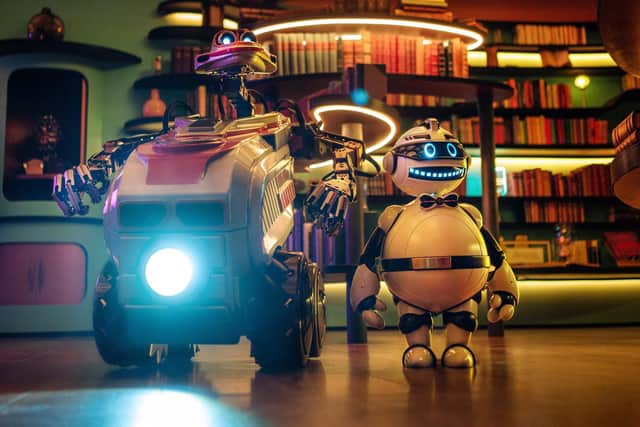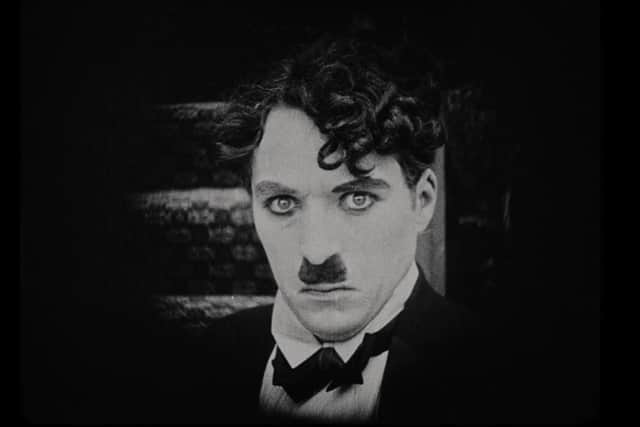Film reviews: Kimi | Bigbug | The Real Charlie Chaplin | Here Before


Kimi (15) ****
Bigbug (15) ***
The Real Charlie Chaplin (12A) ****
Here Before (15) **
There has been a raft of movies reflecting our recent lockdown experiences, but Steven Soderbergh’s latest film Kimi is the first major one that’s actually good. That should come as no surprise. It was Soderbergh who anticipated the pandemic with the nerve-shredding Contagion back in 2011 and, ever the formalist, he taps into the claustrophobia of our self-isolating times with a nifty tech thriller riff on Brian De Palma’s Blow Out and Hitchcock’s Rear Window.
Zoe Kravitz takes the lead as Angela Childs, an analyst for a tech start-up that’s about to go public with the eponymous Kimi, an AI-powered digital assistant designed to rival Alexa and Siri, but differing in that the company uses people rather than algorithms to monitor errors and help it learn.
Advertisement
Hide AdAngela is one such employee and she spends her days in her expansive Seattle loft listening to streams of data, correcting miscommunications, and occasionally interacting with fellow work-at-home colleagues on Zoom. But Angela is also suffering from trauma-induced agoraphobia, and while Soderbergh’s camera glides and pivots through the space to give us a sense of the freedom her carefully calibrated life gives her, the hard angles of her industrial windows are a frequent reminder of her self-imposed confinement. She really struggles to go outside and whenever she tries to leave her apartment, Soderbergh opts for tight close-ups, shrinking her physical space and putting us inside her agitated mental state. It’s an elegant way of setting up the parameters of Angela’s world and he uses it to ratchet up the tension as the plot kicks in.


That happens when Angela hears a crime being committed on one of the data streams. When she tries to report it, her line manager doesn’t want to know, but as her report gets kicked up the corporate ladder, a world of trouble inevitably awaits. What follows is a brilliantly slick and efficient paranoid conspiracy thriller (the script is by Jurassic Park and Panic Room writer David Koepp and features the best Checkovian use of a nail gun since Lethal Weapon 2). But what kicks the film up a gear is the subtle way it rails against tech companies that use their benevolent-seeming products to mask their profit-above-all-else ruthlessness.
The film finds clever ways to spill the action onto the streets and Soderbergh (who also shot and edited the film under his usual pseudonyms) revels in the possibilities, at one point engineering a chase sequence to collide with a protest rally to show how surveillance culture is sometimes no match for direct action – or, in the age of MeToo, a woman who refuses to keep quiet.
There’s more tech paranoia in Bigbug, although as imagined by Amélie director Jean-Pierre Jeunet, the debilitating effect of artificial intelligence here becomes the basis for a brightly coloured French farce. Set at some unspecified date in the future, the film imagines a society where humans have willingly enslaved themselves to AI for the sake of an easy life and are only just waking up to the fact that they’ve become subservient playthings under constant surveillance – the modern equivalent of animals in a zoo.
Rather than offering an expansive vision of this brave new world, Jeunet zeroes in on the dysfunctional household of a book-loving divorcée (Elsa Zylberstein) as she and her guests find themselves under enforced lockdown while a new breed of AI launches a coup d’état. Not all tech is bad, though, and in the spirit of Jeunet’s outsiders-on-a-mission movie MicMacs, from 2009, the only hope for this particular band of squabbling humans is a group of malfunctioning domestic robots whose affection for their human compatriots has unleashed in them a raft of complicated feelings as they confront their own obsolescence in the face of their oppressive new AI superiors.


Working once more in an absurdist comic register, Jeunet ensures it’s all very over-the-top and while this can be a little wearisome, its playfulness is also underscored by casual scenes of book-burning and hypnosis that chip away at a darker message about the dangerous ways tech can fuel authoritarianism.
Advertisement
Hide AdAlthough it’s hard to avoid all the rags-to-riches, sad clown clichés when assessing Charlie Chaplin’s life (largely because he cannily exploited most of them himself throughout his movie career), the new documentary The Real Charlie Chaplin deserves credit for not trying to explain away his myriad contradictions or retrospectively cancel him for all his reprehensible behaviour. Instead it understands that people contain multitudes, which allows the film to analyse and celebrate his artistic genius while also giving voice to the hitherto marginalised ex-wives he effectively gas-lit as teenage ingenues. Chaplin was a complex man who lived a complex life during complex times and directors Peter Middleton and James Spinney do a good job of disentangling him from the Tramp persona that not only helped usher in a new art form, but also our modern understanding of fame.
Starring Andrea Riseborough as a bereaved mother who becomes unhealthily obsessed with the little girl who moves in next door, Here Before can’t decide if it wants to be an ambiguous drama about grief or a rug-pulling horror freak-out. Unfortunately, in trying to be both, Stacey Gregg’s debut satisfies neither impulse.
Advertisement
Hide AdKimi is streaming on Sky Cinema and NOW and is available on digital download; Bigbug is on Netflix now; The Real Charlie Chaplin is in cinemas and on digital demand; Here Before is on selected release and Curzon Home Cinema.
A message from the Editor:
Thank you for reading this article. We're more reliant on your support than ever as the shift in consumer habits brought about by coronavirus impacts our advertisers.
If you haven't already, please consider supporting our trusted, fact-checked journalism by taking out a digital subscription at https://www.scotsman.com/subscriptions